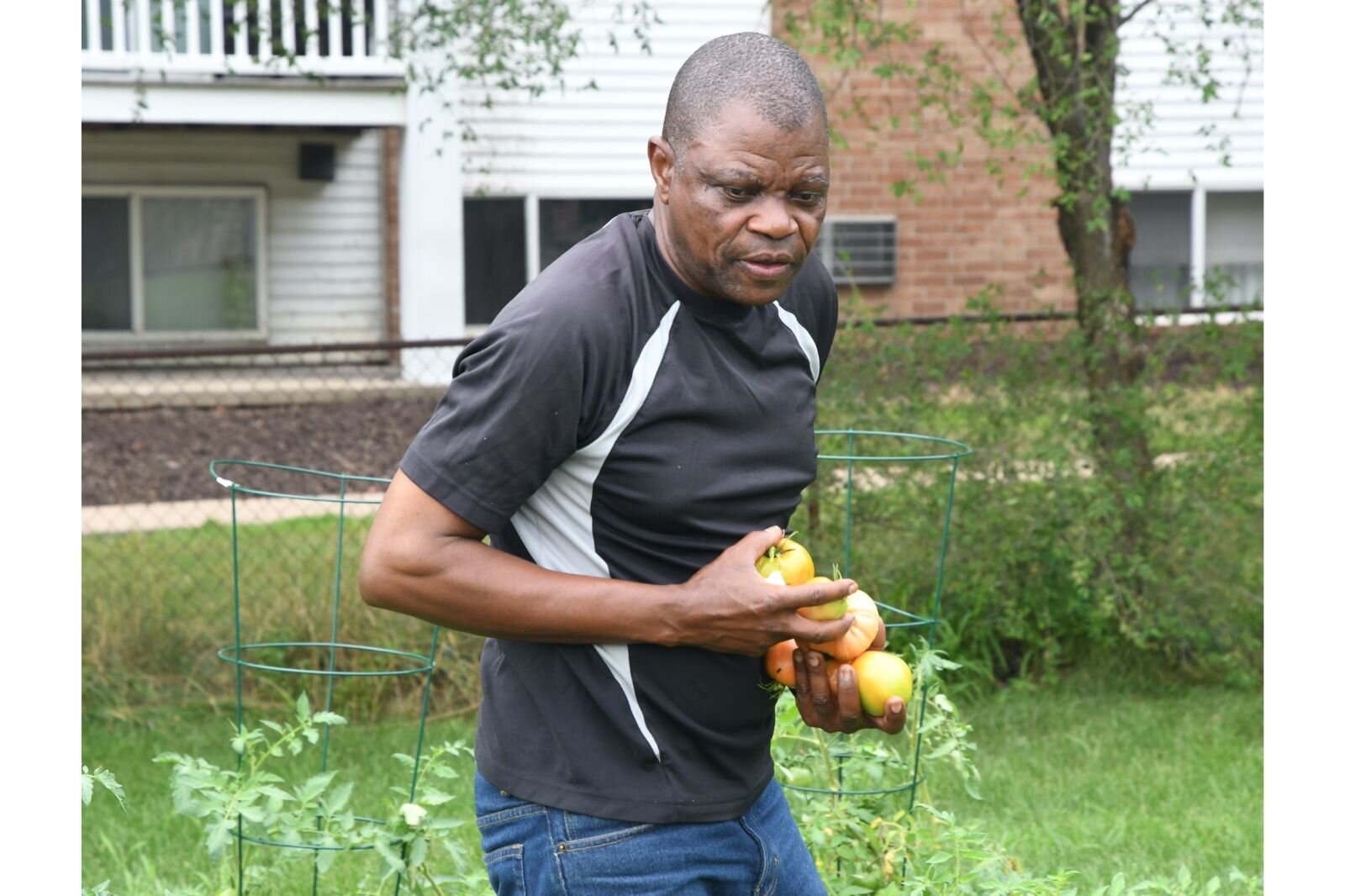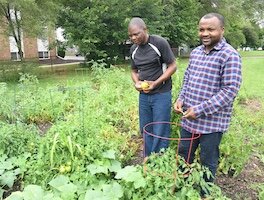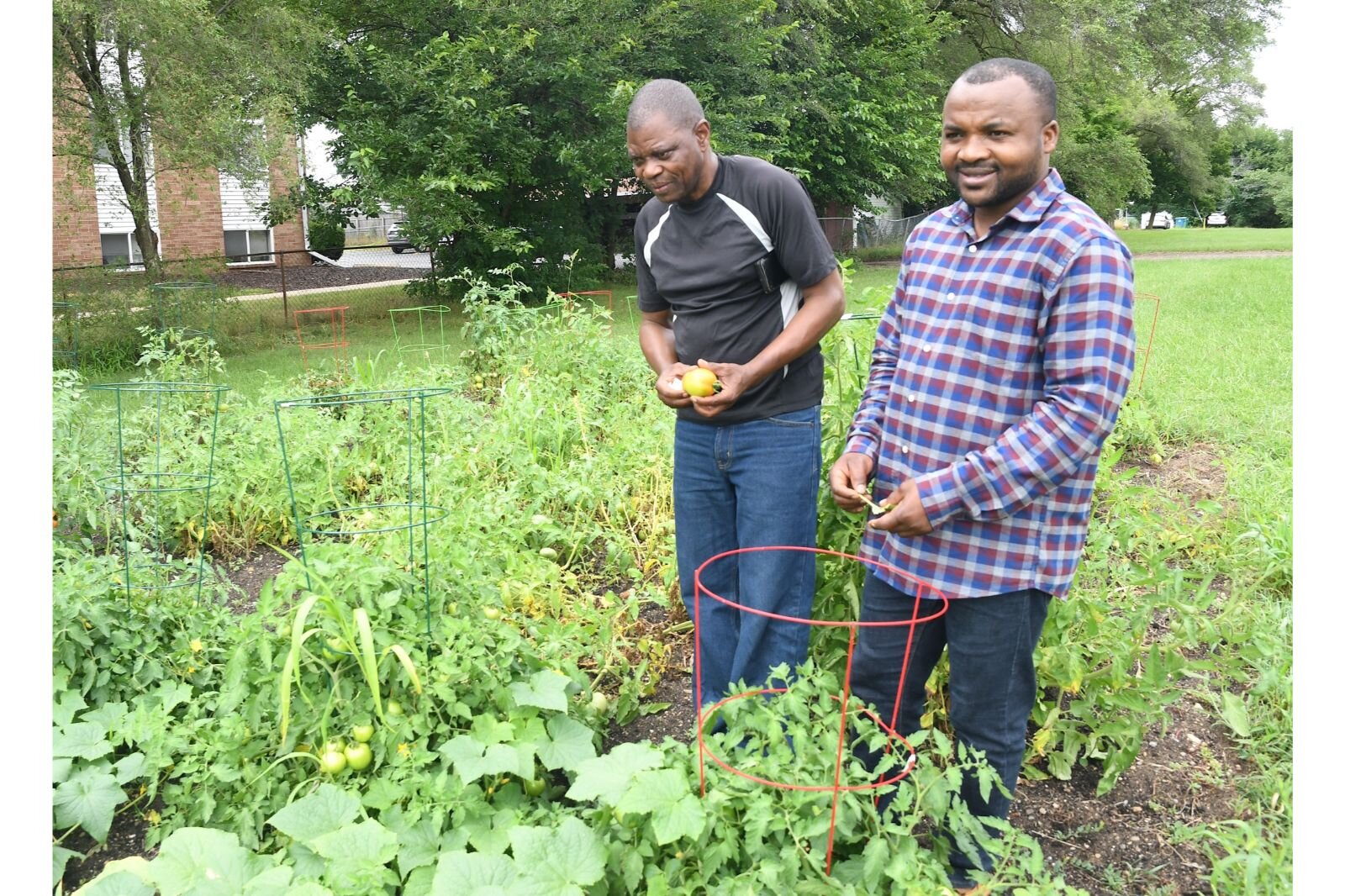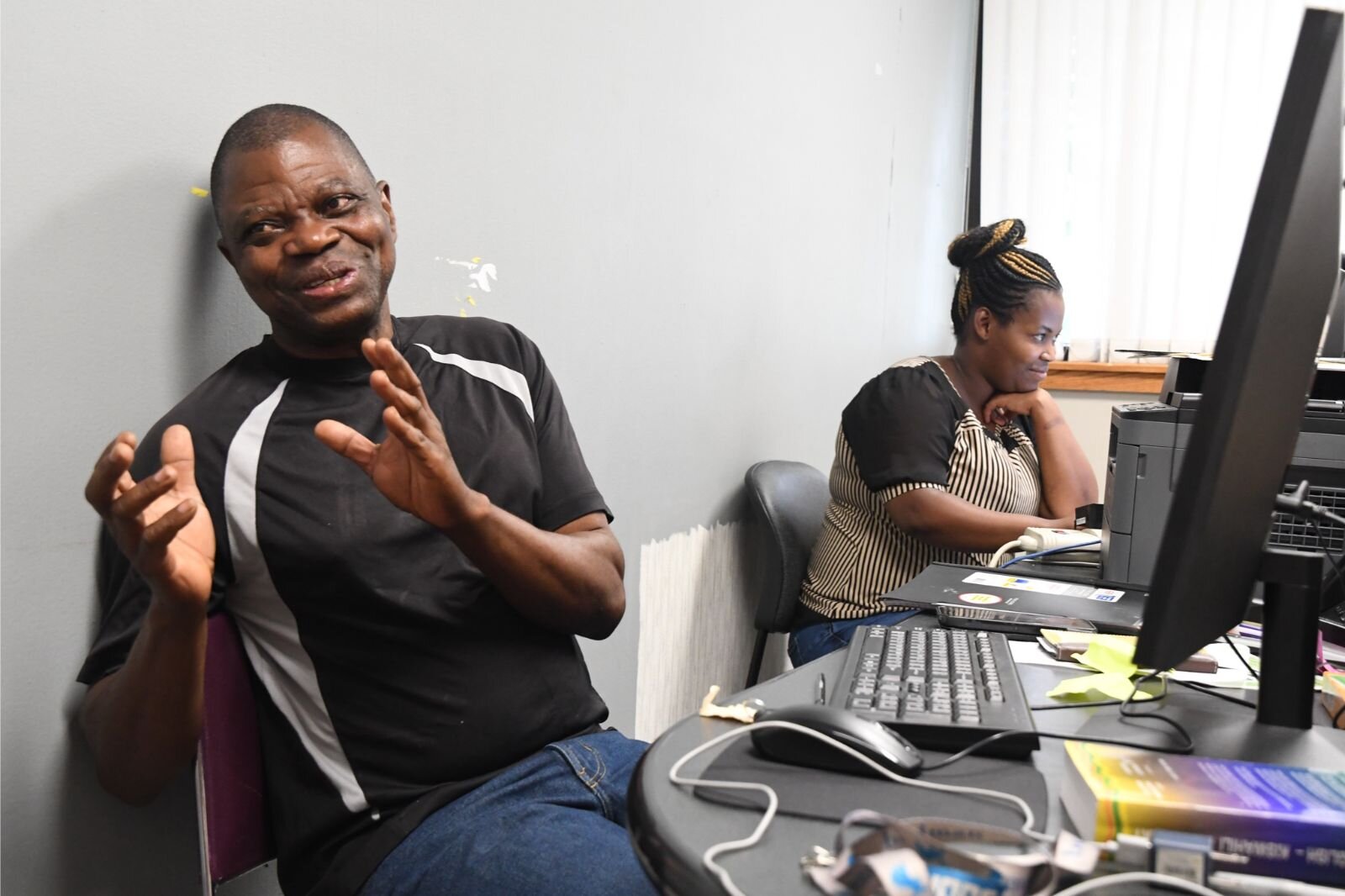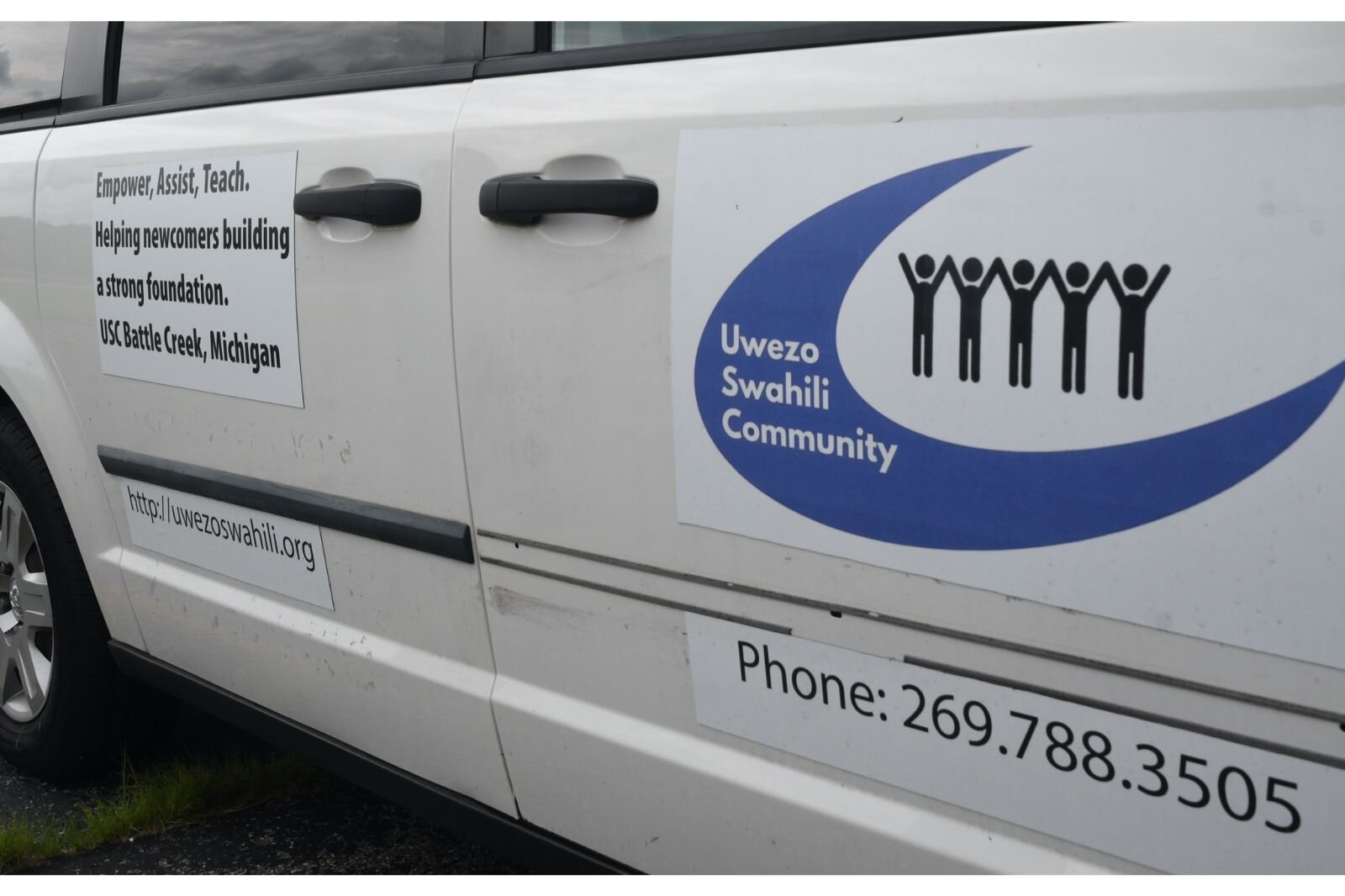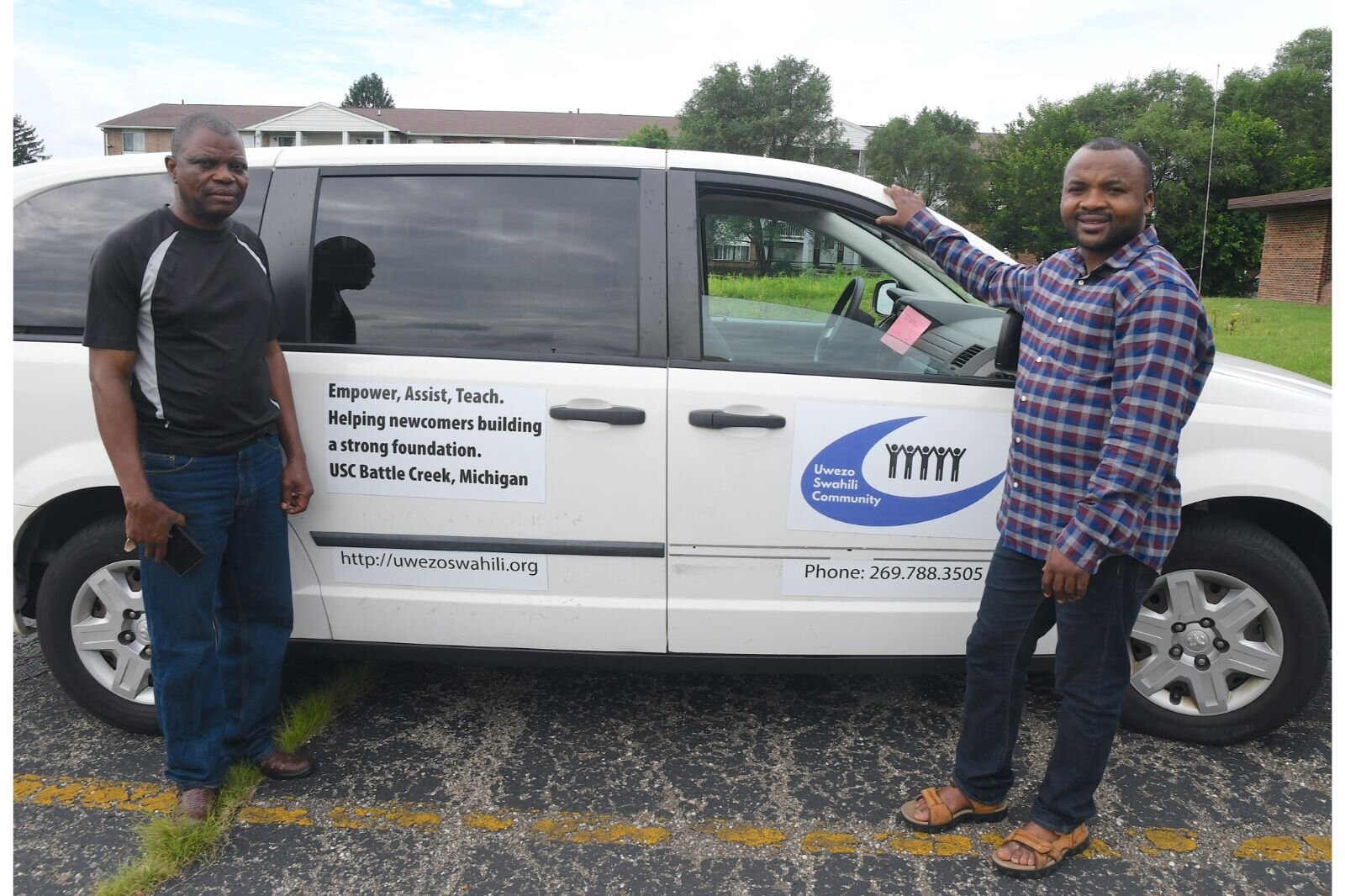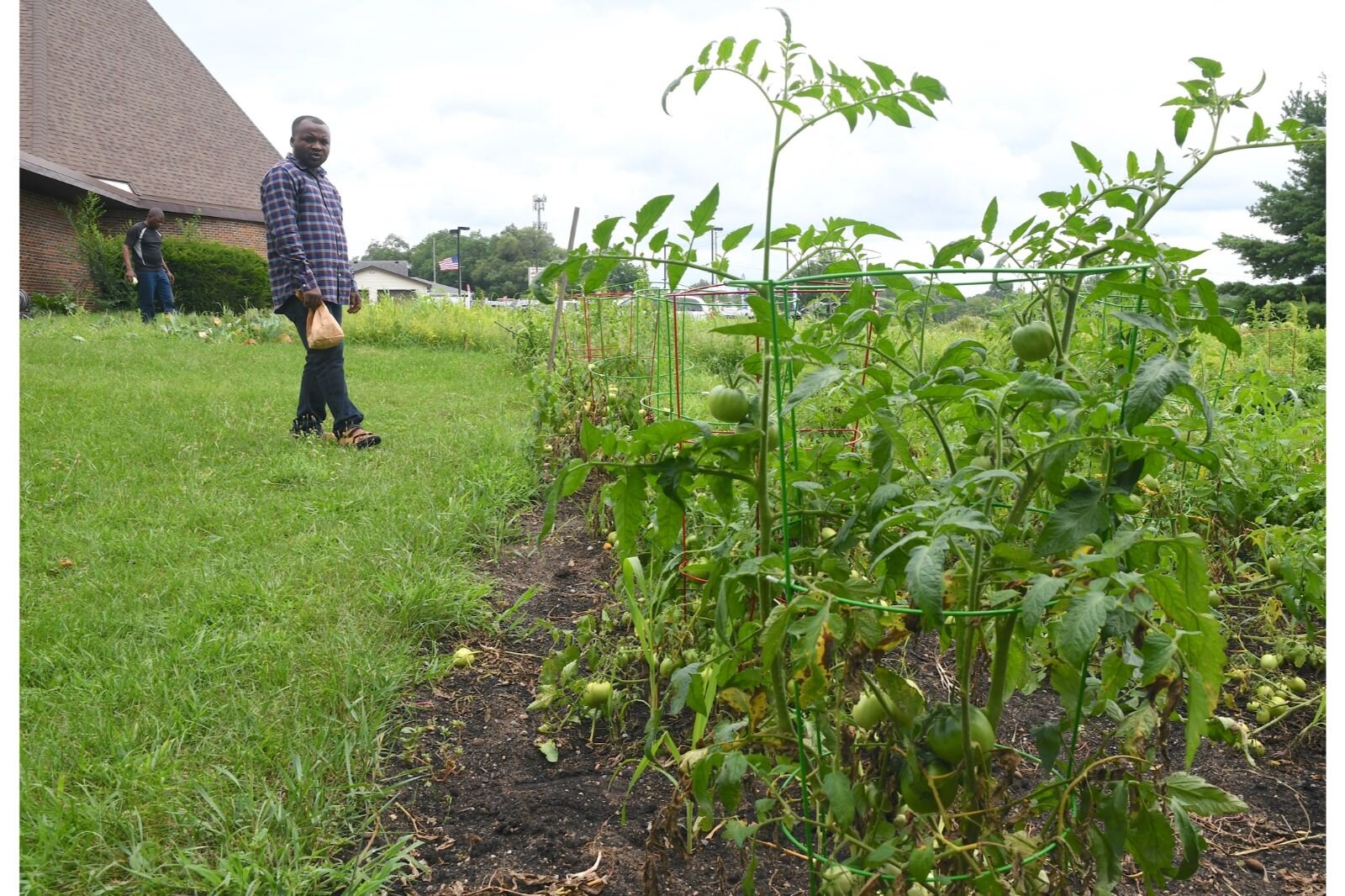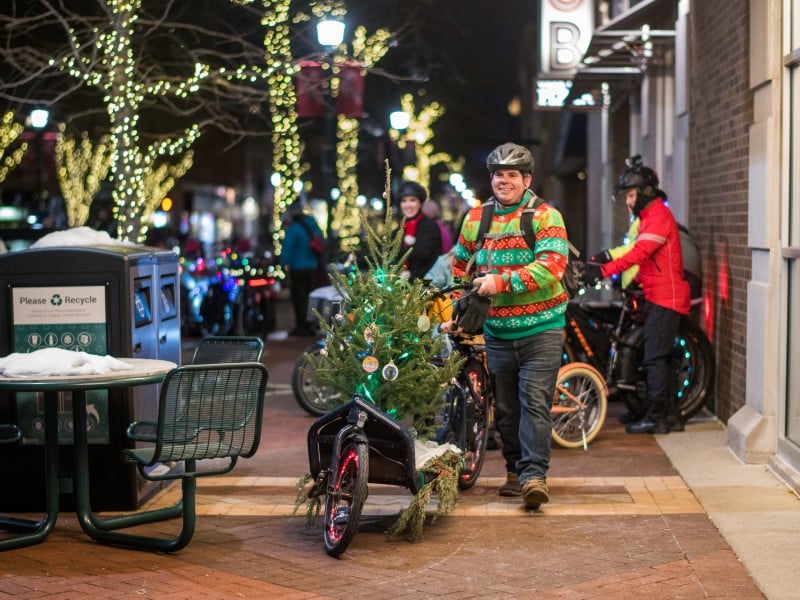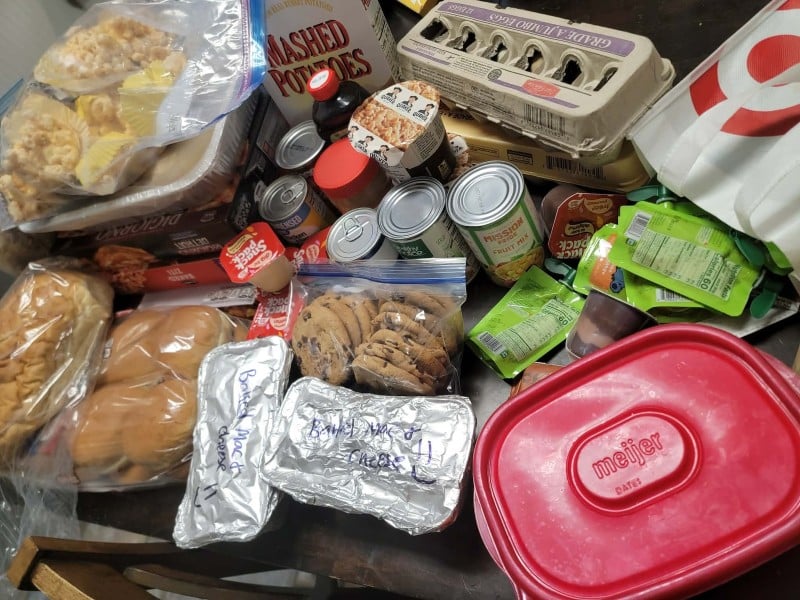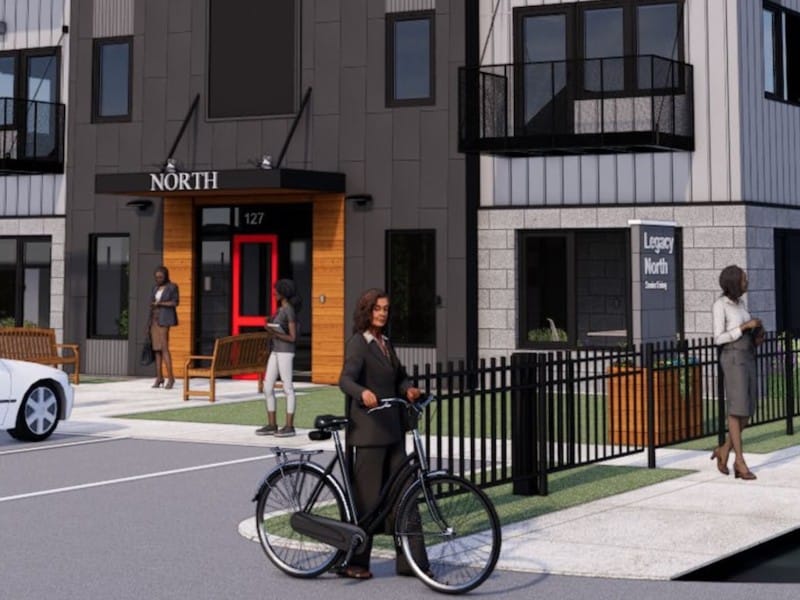Editor’s note: This story is part of Southwest Michigan Second Wave’s On the Ground Battle Creek series.
Battle Creek has become a city of choice for refugees who have fled violence and political unrest in the Congo in Africa in search of better lives with more opportunities.
Battle Creek is now home to more than 100 former refugees, including 20 families, says Mbuto Kabumba, who came here with his family nine months ago. Mbuto lives in a house with his wife and eight children and is a machine operator at Melling Engineered Aluminum Castings.
In his home country, he was an elementary school teacher, a job he couldn’t resume in the United States because he says, “In America, they don’t value our (educational) degrees from Africa.”
Zawadi Kibumba had a similar experience while living in Lansing with his family before they relocated to Battle Creek in April. He and his wife have five children ranging in age from 18 months to 15 years old.
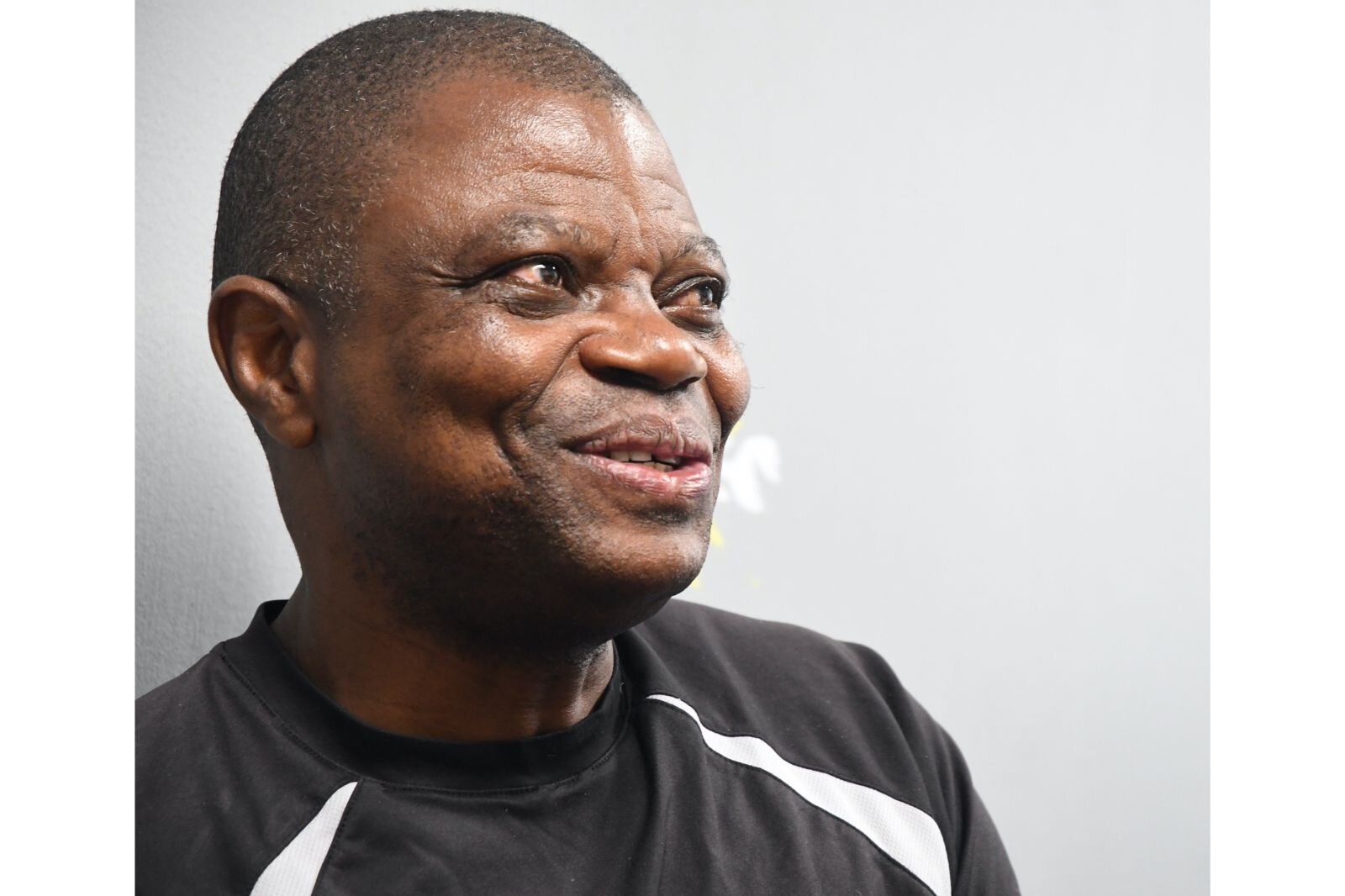
“I’ve got a Bachelor’s degree in Theology, Bachelor’s degree in Community Development, and a high school diploma in Agriculture, none of which are recognized here,” says Zawadi, who is employed by Denso Manufacturing as an Associate in the company’s HVAC area. “They don’t value our documents. When I came from Africa, I came directly to Lansing. At a Lutheran church there I showed them all of my documents. I was serving a Pentecostal church in Africa. When we came here the pastor told us ‘This is good, but unfortunately we don’t recognize it here.”
He says he is grateful to have a job and a home in a community that is very supportive of him and his fellow Congolese. And he is well aware that life in the United States is far different and much better than the one he left in the Congo, but he wishes his degrees were recognized here.
This is among the challenges facing refugees like him. Mbuto says another obstacle is the language barrier.
“In my country, we speak French and Swahili,” he says. “Language is a barrier to do everything here. I try to learn English.”
As a way to address this and a whole host of other challenges, the city’s NAACP (National Association for the Advancement of Colored People) Branch in January began an initiative to make resources and services readily available to members of the city’s Congolese community on an ongoing basis. Under the direction of Carey Whitfield, President of the local NAACP Branch, about 30 Congolese residents shared their needs and concerns with leaders including those from the Battle Creek Community Foundation, the City of Battle Creek, the Battle Creek Public Schools, the Lakeview School District, the Battle Creek Police Department, and the Southwestern Michigan Urban League.
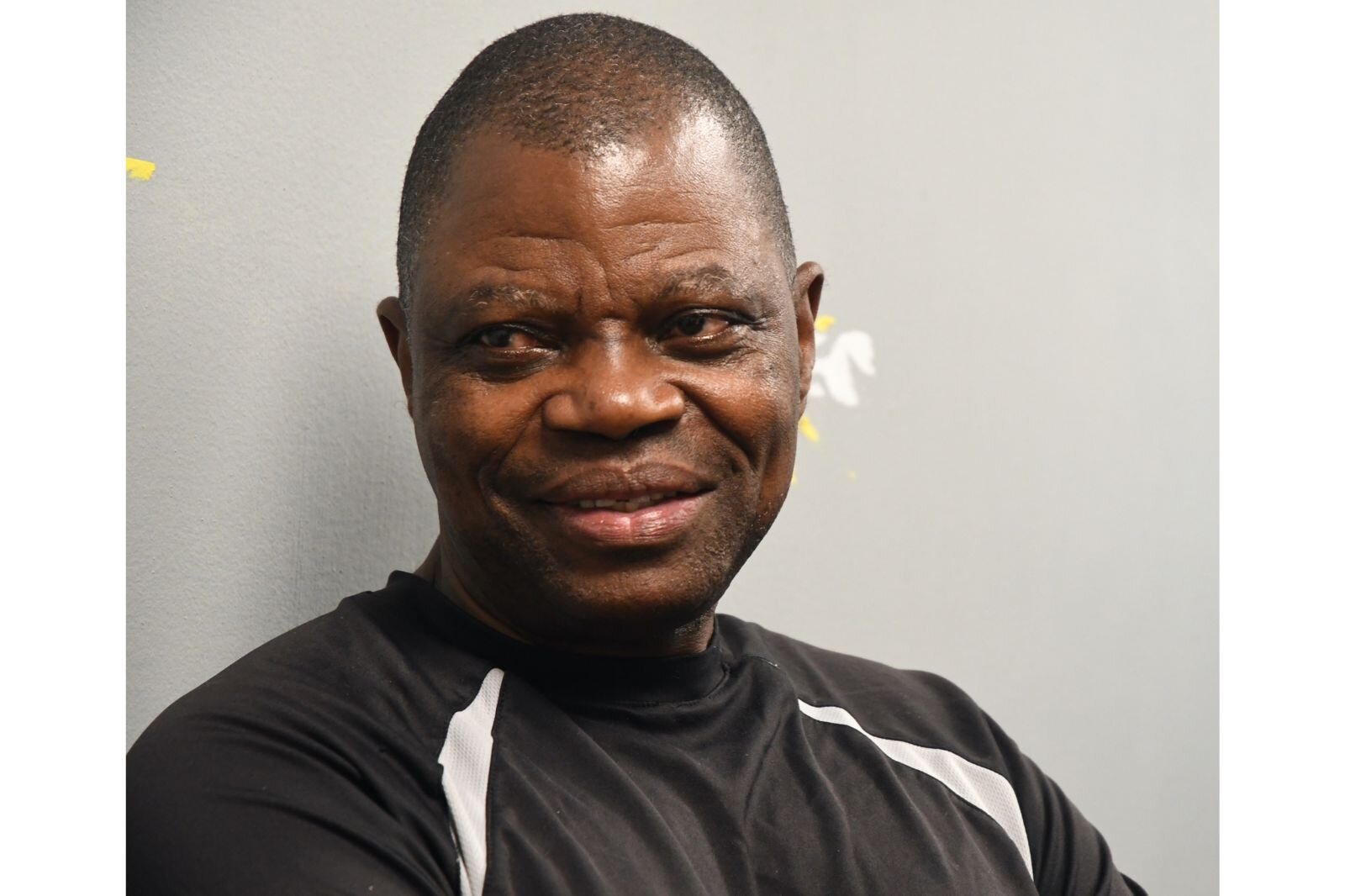
Whitfield says during that meeting at the Burma Center, “We made a commitment to help members of our Congolese community get started. We invited them to have a place at the Urban League where they could begin the process of organizing their community. We did that through a process of creating two resource navigators in their community. These are two people who speak English. We got a trainer through BCCF to train them to be resource navigators.”
At that time, he says there were about 70 members of the Congolese community “with the expectation that there would be another 60 plus arriving sporadically this year coming from Lansing, the Congo and Kenya. “Many of them have been here up to three or four years and some longer. We had quite a few who have come in the last year,” Whitfield says.
The growth of the Congolese community prompted Zawadi to begin an effort to organize residents as the Uwezo Swahili Community (USC). He now leads the USC which operates out of donated office space at the Southwestern Michigan Urban League.
“They needed space to have centralized locations where they can begin trainings and learning. It just so happened that we had office space available and as I’ve done with a lot of other organizations, I offered it to them,” says Kyra Wallace, Southwestern Michigan Urban League President and CEO. “They’re here and they have space and they’ve been doing a phenomenal job with understanding the resources and getting them out to their community members.”
Whitfield says he became aware of Zawadi and his desire to organize the Uwezo Swahili Community through Zawadi’s ESL (English as a Second Language) instructor. Whitfield, a realtor, worked with Zuwadi to purchase a home and the two formed a friendship that led to the January meeting and access to much-needed resources and services.
These resources include access to food, clothing, and medical care. Whitfield says a van purchased by the USC for $1 from Carewell Services of Southwest Michigan is being used to transport members of the community to area service providers.
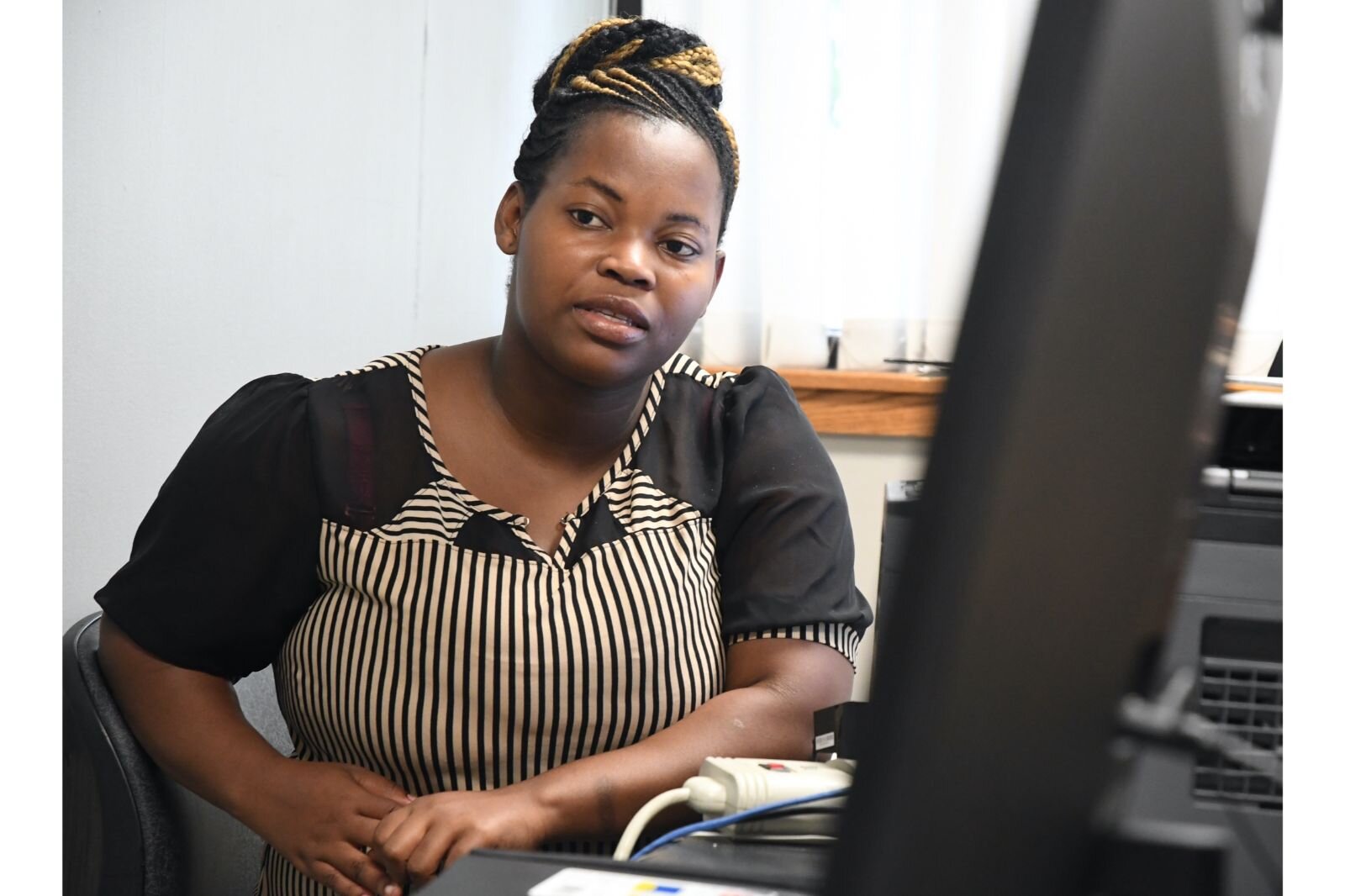
“We are now working on a relationship between them and Grace Health to get at least a baseline physical and get them to doctors,” Whitfield says. “We also have several gardens throughout the city where they can plant their own vegetables and grow their own food and storage units that are being used to store furniture and clothing that has been donated to their community.”
Grants from foundations and organizations including the W.K. Kellogg Foundation, BCCF, the J.E.C.K.S Fund which was started by Joe and Clara Stewart, community philanthropists and the United Way of South Central Michigan have helped to cover the cost of salaries for the resource navigators and pay for of computer equipment and telephones for the USC office, Whitfield says.
Connections formed, a place to call home
The journey to Battle Creek for members of the Uwezo Swahili Community began in refugee camps where some remained for 10 years as they waited to be re-settled.
“When we were in Africa, it was difficult to get permission to come here,” Zawadi says. “It was a long process. You can begin today and after seven or 10 years you can be selected.
Mbuto says he and his family left a refugee camp in Tanzania in 2016 to come to Grand Rapids. He says they then came to Battle Creek because it was a better fit.
“I like this area because it’s quiet. Grand Rapids is a big city and life there was expensive for me. I have 10 people in my family, my wife, and eight kids,” Mbuto says. “To find housing in Grand Rapids was very difficult for me. We feel welcome here.”
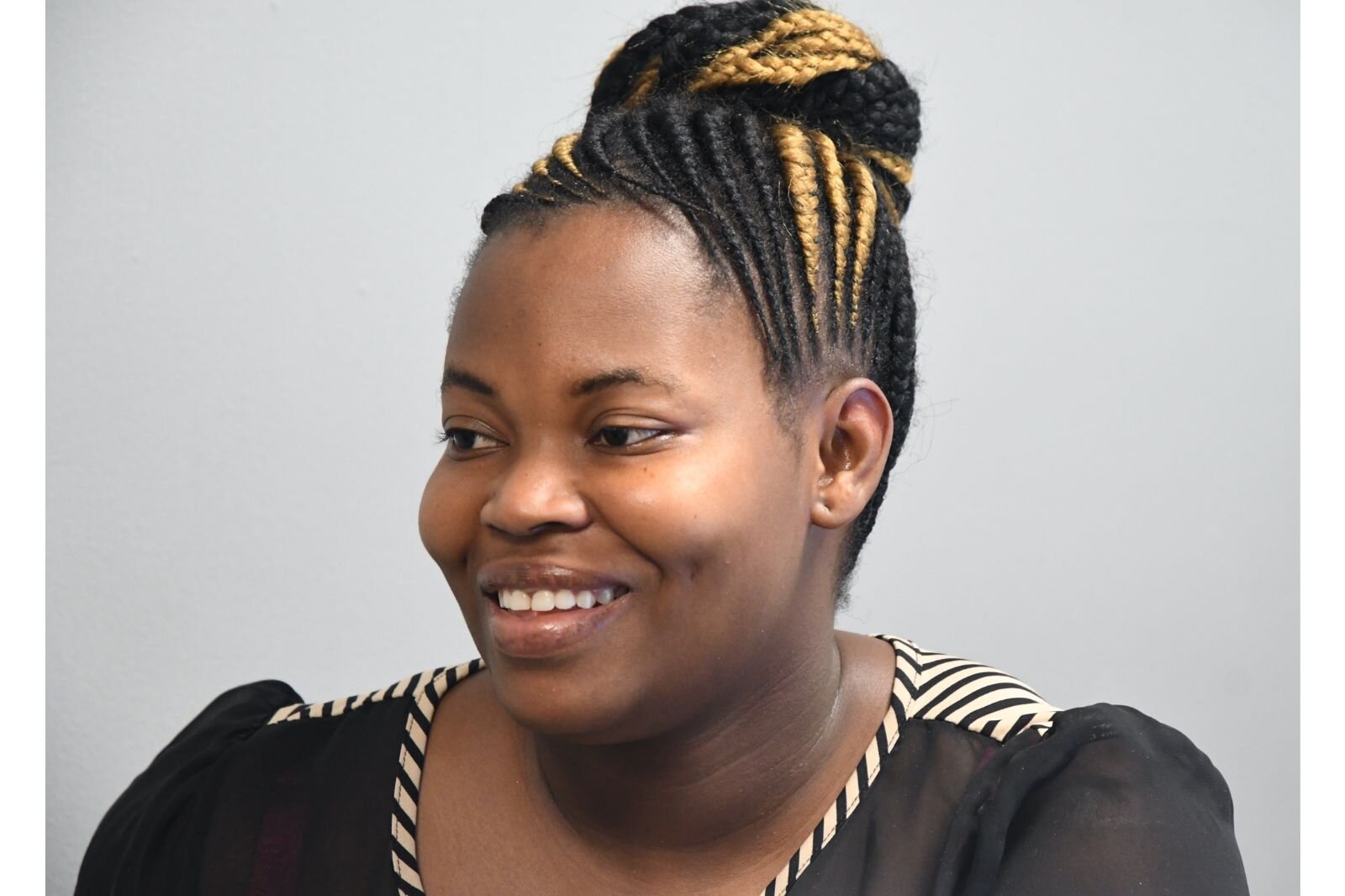
Roda Juma, who works as an interpreter in the USC’s office, says she and her mother had similar experiences. She and her husband who she met in Grand Rapids came to Battle Creek because “life in Grand Rapids was too hard for us,” she says. “Everything was too high, like rent and housing. We were trying to find a better life.”
Roda and her husband have been in Battle Creek for more than a year. But she took a circuitous route to get here. As a child she and her mother left Mozambique in 2011. Their first stop was Arizona. After two weeks there, they moved to California, but her mother was unable to find work because she couldn’t speak English. Their journey eventually brought them to Michigan.
Roda’s mother found a job in Grand Rapids but had to stop working after suffering a stroke. While she decided to stay there, Roda says she learned about Battle Creek through another refugee who had settled here. She says she really didn’t know much about the city before moving here.
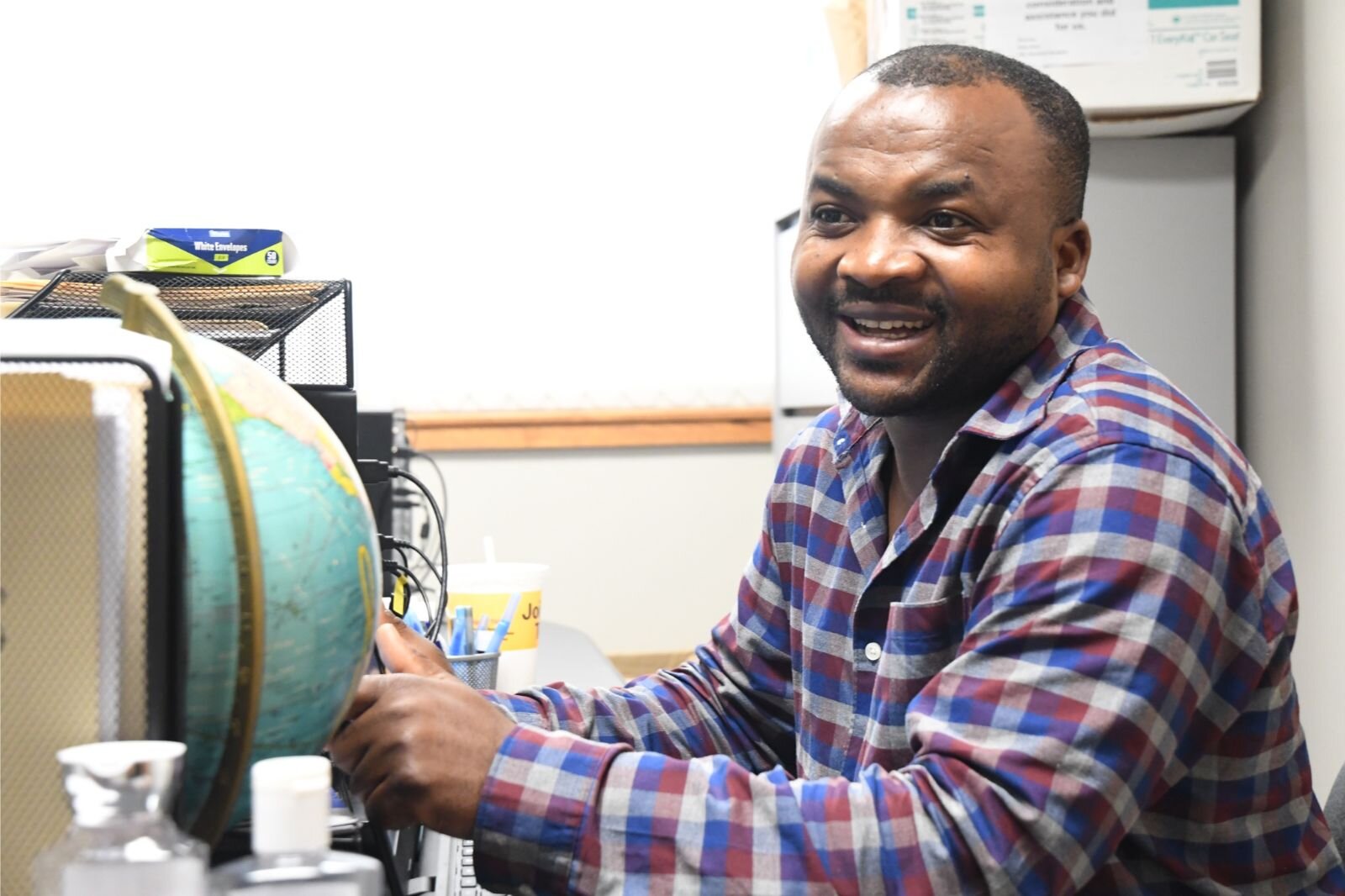
Even though her husband doesn’t speak much English, he was able to find work. However, she says, “Most of our people don’t speak English. The big challenge is language. Some companies don’t take people who don’t speak English.”
Whitfield says there is a need for individuals who can serve as interpreters as well as those willing to volunteer to work on other needs within the USC community.
In addition to navigating the language barriers, Roda says members of her community also are finding ways to make sure they can adhere to their native diets which are rich in fresh vegetables, fish, rice and grains.
She says having access to land where they can plant vegetable gardens is very important and signifies the support they have from different community groups and organizations, including Trinity Lutheran Church, that are working with them on these gardens.
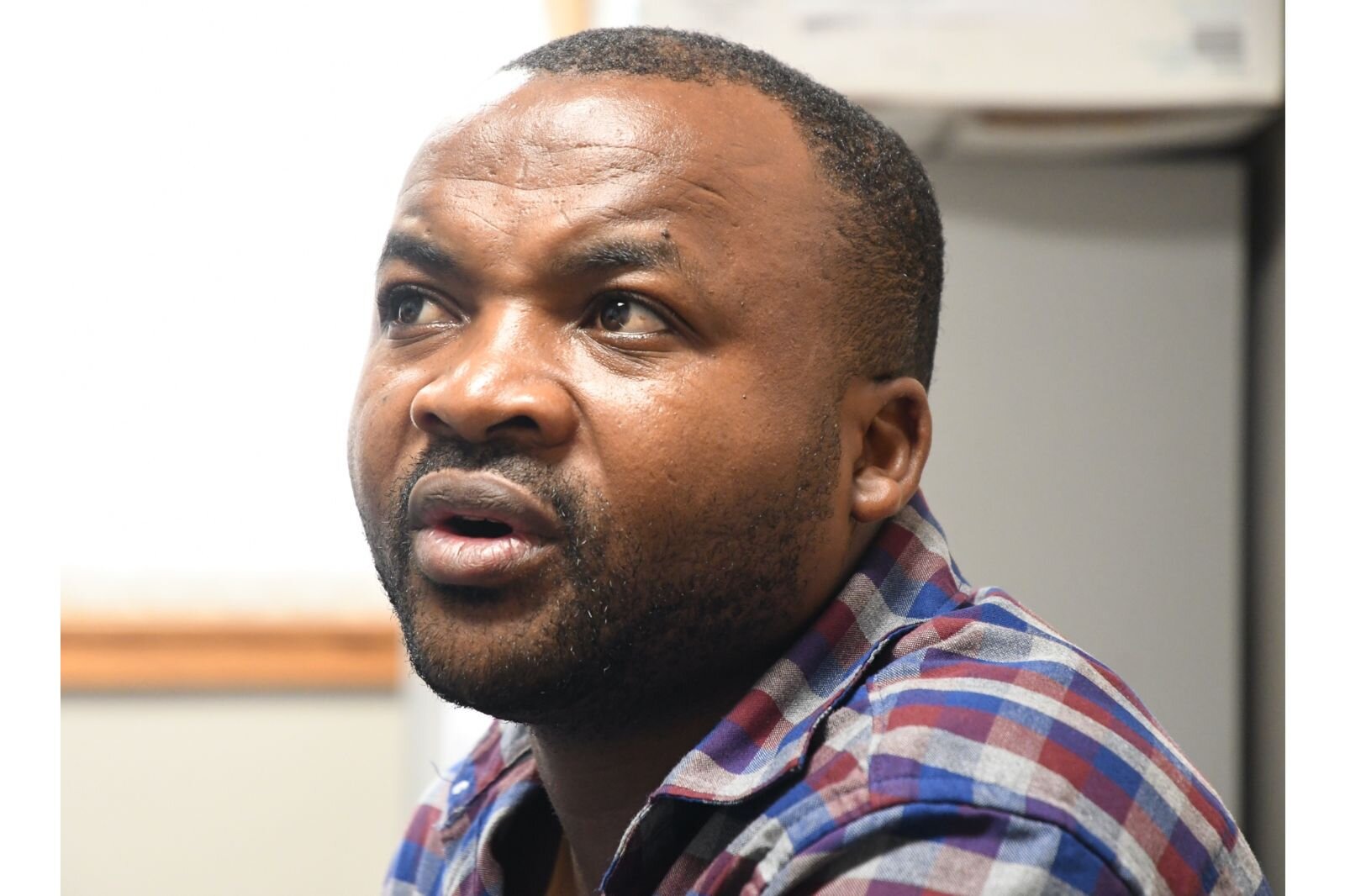
Zawadi says he is grateful for the outpouring of support he and his community have received in Battle Creek.
“This is a good place to live for us because we have jobs and the schools are good for our kids. They are performing well and expected to achieve their goals,” he says.
Among the things Zawadi would like to see happen – a broader recognition of the Congolese community by the larger Battle Creek community.
“We would like people and resources in Battle Creek to recognize our community and our language to be among the languages spoken in the Battle Creek area to make our community integrated in the Battle Creek community. We would like people to know about our culture and our people to know about the Battle Creek culture,” he says. “We also would like to have a police officer who could speak some Swahili to work with our community. The Congolese people, we are good people and we don’t have any trouble and we don’t need to live in trouble. We like to enjoy ourselves and dance and we like to praise the Lord and work. That is our basic emphasis.”
